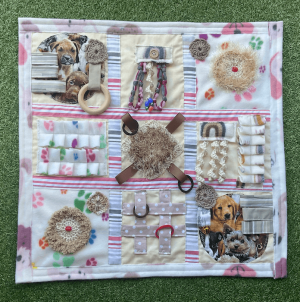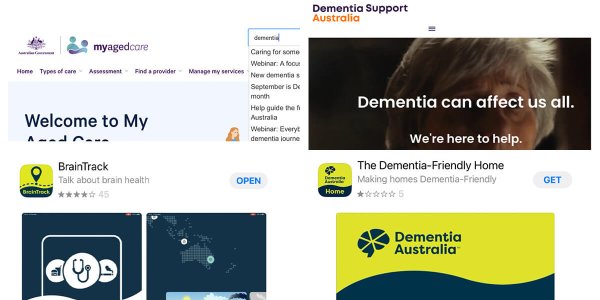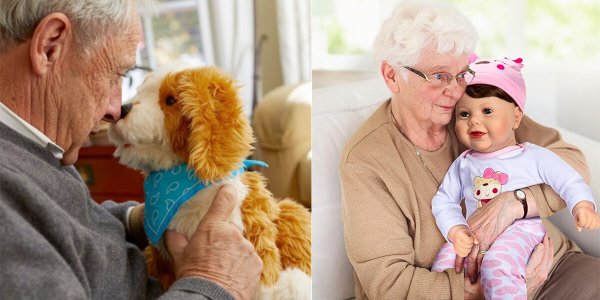Ask Joy: Supporting Someone with Dementia
- Replies 5
Note from the Editor:
This article was kindly written for the SDC by retired psychologist/ member @Joy Straw.
Have you ever had a deadline and been trying to finish some work that’s difficult, and everyone keeps interrupting you? There are often feelings of stress, frustration, irritability and anxiety. Coupled with fear of failure is quite similar to how a person with dementia is feeling all the time. And when everything comes to a head, there’s the inevitable explosion of anger. Not being able to understand what is happening or not able to know what to do about it, can be extremely frustrating and frightening.
There are 15 people with dementia per 1000 Australians (greater in women than men) (aihw.gov.au).
An estimated 400,000 Australians live with dementia, with 1.5 million people involved in their care (Dementia Australia, 2023).
Dementia risk reduction
Where to access SUPPORT
- National Dementia Helpline 1800 100 500 or webchat. The National Dementia Helpline operates 24 hours a day, seven days a week, 365 days a year.
- Upcoming support training for carers and families.
- Dementia Support Australia (dementia.com.au)
Dementia Support Australia offers a newsletter and multiple short videos on:
One on one
Busy hands helped to reduce anxiety and depression.

Other things that may help include.
ABSOLUTES for CAREGIVING for PEOPLE LIVING with DEMENTIA
Never ARGUE instead, AGREE.
Never REASON instead, DIVERT.
Never SHAME instead, DISTRACT.
Never LECTURE instead, REASSURE.
Never REMEMBER instead, REMINISCE.
Never say, I TOLD YOU instead, REPEAT what was said.
Never say YOU CAN’T instead, say DO WHAT YOU CAN.
Never DEMAND or COMMAND instead, ASK or MODEL.
Never CONDESCEND or be SARCASTIC; instead, ENCOURAGE and PRAISE.
Never FORCE instead, REINFORCE and REPEAT, REPEAT, REPEAT.
I personally have this laminated and hung on the fridge to remind myself when my frustration kicks in. Carer frustration is normal, but try to vent away from the individual with dementia, not knowing what they have done, can be very scary for them. Remember, their behaviour is not deliberate. This is fear, confusion, misunderstanding, anger, and anxiety. The key to staying calm is patience, patience, and patience and not taking their behaviour personally.
Recently, a friend living next door to somebody heard an alarm going off and went to investigate. Mary, the lady who lived there, could not ‘hear’ the alarm (she had no idea what it was) but was reassured there was an alarm going. She kept denying it, but when the door was opened, the friend was able to go in and point to the small alarm clock ringing. Mary continued to deny the alarm even when given it to listen to. It was suggested she turn it off. She looked at it and put it down. It was again suggested she turn it off again. She picked it up, looked at it and put it back down sadly, for Mary could no longer understand the sequence to turn the sound off. Rather than continue the back-and-forth about the alarm, the friend reached over and turned the alarm off with a smile.
Dementia is not just forgetting; it’s not understanding. 2+2= ? It used to be 4 when we knew all our numbers, where they went, and what they were for, but dementia scrambles that, and even with visual proof and clear explanations, it may be impossible to understand that 4 is the answer.
If you can imagine all that confusion, you could probably understand the fear and anxiety that goes with it. With fear, anxiety, and confusion often comes anger, not because you are doing the wrong thing or there’s no love anymore, but because it must be very scary when the world becomes a foreign place. There are a couple of new drugs on the market (2022). Donanemab and Lecanemab, when taken early, can slow the progress but can’t cure or reverse the progress as yet. However, new drugs are being trialled now, and there is hope for the future.
Finally, be compassionate with the person you’re caring for and yourself. You will be grieving from the minute you hear the words that someone you love has dementia. It is not a single grief that will pass quickly but a series of multiple griefs that will twist and turn over time. Know that you are not alone; there are professional people and people around you who will want to help. If the grief becomes so great that it feels difficult to carry on, then you need professional support. And, if possible, try to find the fun side of things and remember, laughter can be healing. It does not mean you love less; it’s more about survival.
A friend used to take his auntie out for lunch, and they went to the same place many, many times. She loved it, and he thought it was funny that he could do this small thing that brought her so much joy because she thought she was going to a new place each time.
As there are many forms of dementia and many individual responses, it is impossible to cover all the information involved in even two articles.
There will come a time on this journey when we come face-to-face with losing someone dear to us. As that time approaches, anxiety and fears will arise, sometimes anger, and most often great sadness. Please know these are normal reactions to having loved someone so very much. Everyone will face this differently, but by surrounding ourselves with loved ones, friends and family, we will, at the very least, have support to face the inevitable. If necessary, seek professional help through your GP, psychologist, or social worker from the hospital. Take time and use the support around you to face a future different to what you’ve known. Please also read ‘Ask Joy: Grief—How to Survive and Thrive’. There is no easy path to overcome grief….
‘If you simply can’t understand why someone is grieving so much for so long, then consider yourself fortunate that you do not understand.’ — Joanne Cacciatore.
Take whatever time you need to heal and start to prepare for a new type of life, which, whether we want it to or not, will continue. Remember you will start the grieving process long before an individual with dementia passes.
Please remember there are people around that do understand and do want to help you. You can find resources here.

About the author: My name is Joy Straw, and I’ve been a counsellor and (now retired) psychologist working with couples and individuals, as well as children in crisis, for over 30 years. I am a widow with two children and three grandchildren and have recently moved to a retirement village and am loving life again.
Note from the Editor:
Interested in reading more from Joy? You can find all her articles here.
Looking for immediate support? Here is a list of free mental health helplines.
You can ask Joy a question here.
You can sign up for SDC Rewards today—it starts at under 14 cents per day.
This article was kindly written for the SDC by retired psychologist/ member @Joy Straw.
Have you ever had a deadline and been trying to finish some work that’s difficult, and everyone keeps interrupting you? There are often feelings of stress, frustration, irritability and anxiety. Coupled with fear of failure is quite similar to how a person with dementia is feeling all the time. And when everything comes to a head, there’s the inevitable explosion of anger. Not being able to understand what is happening or not able to know what to do about it, can be extremely frustrating and frightening.
There are 15 people with dementia per 1000 Australians (greater in women than men) (aihw.gov.au).
An estimated 400,000 Australians live with dementia, with 1.5 million people involved in their care (Dementia Australia, 2023).
Dementia risk reduction
- Physical activity—Keep active regularly.
- Stop smoking.
- Eat a balanced diet, for instance, the Mediterranean diet.
- Alcohol in moderation
- Cognitive training—Games, puzzles, chess, online games, and specialised activities, e.g. Brain Track.
- Keep socially active on a regular basis.
- Manage weight.
- Manage hypertension— Have your blood pressure checked regularly by a GP.
- Manage diabetes.
- Manage cholesterol.
- Manage depression.
- Look after and manage hearing loss (Dementia Australia).
- SUPPORT the person to live well at home for as long as possible. E.g., Meals on Wheels, Home Help and Aged Care.
- SUPPORT the person to continue with their hobbies, activities and interests, e.g. Go with them or find someone to go with them to play golf.
- LEARN about dementia so you’re better able to manage changes. There will be many changes and needs to adapt.
- ACCESS support services and programs to maintain your health and well-being, e.g. Respite Care, Dementia Australia, Dementia Support, and Aged Care.
Where to access SUPPORT
- National Dementia Helpline 1800 100 500 or webchat. The National Dementia Helpline operates 24 hours a day, seven days a week, 365 days a year.
- Upcoming support training for carers and families.
- Dementia Support Australia (dementia.com.au)
Dementia Support Australia offers a newsletter and multiple short videos on:
- Understanding agitation
- Understanding apathy—lack of motivation
- Wanting to leave or ‘go home’
- Understanding behaviours
- How dementia can affect us all
One on one
Busy hands helped to reduce anxiety and depression.
- Fidget/ Activity Blanket — Zips, buttons, anything that can be touched or moved and attached to an apron or blanket. This helps reduce anxiety. Look on Pinterest for DIY ideas.

A beautiful fidget blanket example by FidgetQuiltsWithLove on Etsy. Image Credit: Etsy/FidgetQuiltsWithLove
- Dolls and simulated pets — Please remember to change batteries regularly. It can be a shock when the pet no longer ‘breathes’. The examples shown below are available here (Robotic Therapy Pet) and here (Therapy Baby Doll).
Other things that may help include.
- Singing and hand actions. E.g. Making music with instruments.
- A personalised music playlist for the individual.
- Video recordings of favourite movies/TV shows. For example, a friend taped her mother’s favourite TV series, Vera, as she had watched it at 5 pm every night. She continued to watch the series on rotation years after the show ceased, at 5 pm every night.
- Music therapy.
- Animal Assistance. E.g. Support dogs.
- Reminiscing and life story.
- Activity groups for dementia sufferers.
ABSOLUTES for CAREGIVING for PEOPLE LIVING with DEMENTIA
Never ARGUE instead, AGREE.
Never REASON instead, DIVERT.
Never SHAME instead, DISTRACT.
Never LECTURE instead, REASSURE.
Never REMEMBER instead, REMINISCE.
Never say, I TOLD YOU instead, REPEAT what was said.
Never say YOU CAN’T instead, say DO WHAT YOU CAN.
Never DEMAND or COMMAND instead, ASK or MODEL.
Never CONDESCEND or be SARCASTIC; instead, ENCOURAGE and PRAISE.
Never FORCE instead, REINFORCE and REPEAT, REPEAT, REPEAT.
I personally have this laminated and hung on the fridge to remind myself when my frustration kicks in. Carer frustration is normal, but try to vent away from the individual with dementia, not knowing what they have done, can be very scary for them. Remember, their behaviour is not deliberate. This is fear, confusion, misunderstanding, anger, and anxiety. The key to staying calm is patience, patience, and patience and not taking their behaviour personally.
Recently, a friend living next door to somebody heard an alarm going off and went to investigate. Mary, the lady who lived there, could not ‘hear’ the alarm (she had no idea what it was) but was reassured there was an alarm going. She kept denying it, but when the door was opened, the friend was able to go in and point to the small alarm clock ringing. Mary continued to deny the alarm even when given it to listen to. It was suggested she turn it off. She looked at it and put it down. It was again suggested she turn it off again. She picked it up, looked at it and put it back down sadly, for Mary could no longer understand the sequence to turn the sound off. Rather than continue the back-and-forth about the alarm, the friend reached over and turned the alarm off with a smile.
Dementia is not just forgetting; it’s not understanding. 2+2= ? It used to be 4 when we knew all our numbers, where they went, and what they were for, but dementia scrambles that, and even with visual proof and clear explanations, it may be impossible to understand that 4 is the answer.
If you can imagine all that confusion, you could probably understand the fear and anxiety that goes with it. With fear, anxiety, and confusion often comes anger, not because you are doing the wrong thing or there’s no love anymore, but because it must be very scary when the world becomes a foreign place. There are a couple of new drugs on the market (2022). Donanemab and Lecanemab, when taken early, can slow the progress but can’t cure or reverse the progress as yet. However, new drugs are being trialled now, and there is hope for the future.
Finally, be compassionate with the person you’re caring for and yourself. You will be grieving from the minute you hear the words that someone you love has dementia. It is not a single grief that will pass quickly but a series of multiple griefs that will twist and turn over time. Know that you are not alone; there are professional people and people around you who will want to help. If the grief becomes so great that it feels difficult to carry on, then you need professional support. And, if possible, try to find the fun side of things and remember, laughter can be healing. It does not mean you love less; it’s more about survival.
A friend used to take his auntie out for lunch, and they went to the same place many, many times. She loved it, and he thought it was funny that he could do this small thing that brought her so much joy because she thought she was going to a new place each time.
As there are many forms of dementia and many individual responses, it is impossible to cover all the information involved in even two articles.
There will come a time on this journey when we come face-to-face with losing someone dear to us. As that time approaches, anxiety and fears will arise, sometimes anger, and most often great sadness. Please know these are normal reactions to having loved someone so very much. Everyone will face this differently, but by surrounding ourselves with loved ones, friends and family, we will, at the very least, have support to face the inevitable. If necessary, seek professional help through your GP, psychologist, or social worker from the hospital. Take time and use the support around you to face a future different to what you’ve known. Please also read ‘Ask Joy: Grief—How to Survive and Thrive’. There is no easy path to overcome grief….
‘If you simply can’t understand why someone is grieving so much for so long, then consider yourself fortunate that you do not understand.’ — Joanne Cacciatore.
Take whatever time you need to heal and start to prepare for a new type of life, which, whether we want it to or not, will continue. Remember you will start the grieving process long before an individual with dementia passes.
Please remember there are people around that do understand and do want to help you. You can find resources here.

Help is available. Image Credit: myagedcare, Dementia Support Australia, BrainTrack, Dementia Australia
About the author: My name is Joy Straw, and I’ve been a counsellor and (now retired) psychologist working with couples and individuals, as well as children in crisis, for over 30 years. I am a widow with two children and three grandchildren and have recently moved to a retirement village and am loving life again.
Note from the Editor:
Interested in reading more from Joy? You can find all her articles here.
Looking for immediate support? Here is a list of free mental health helplines.
You can ask Joy a question here.
You can sign up for SDC Rewards today—it starts at under 14 cents per day.








